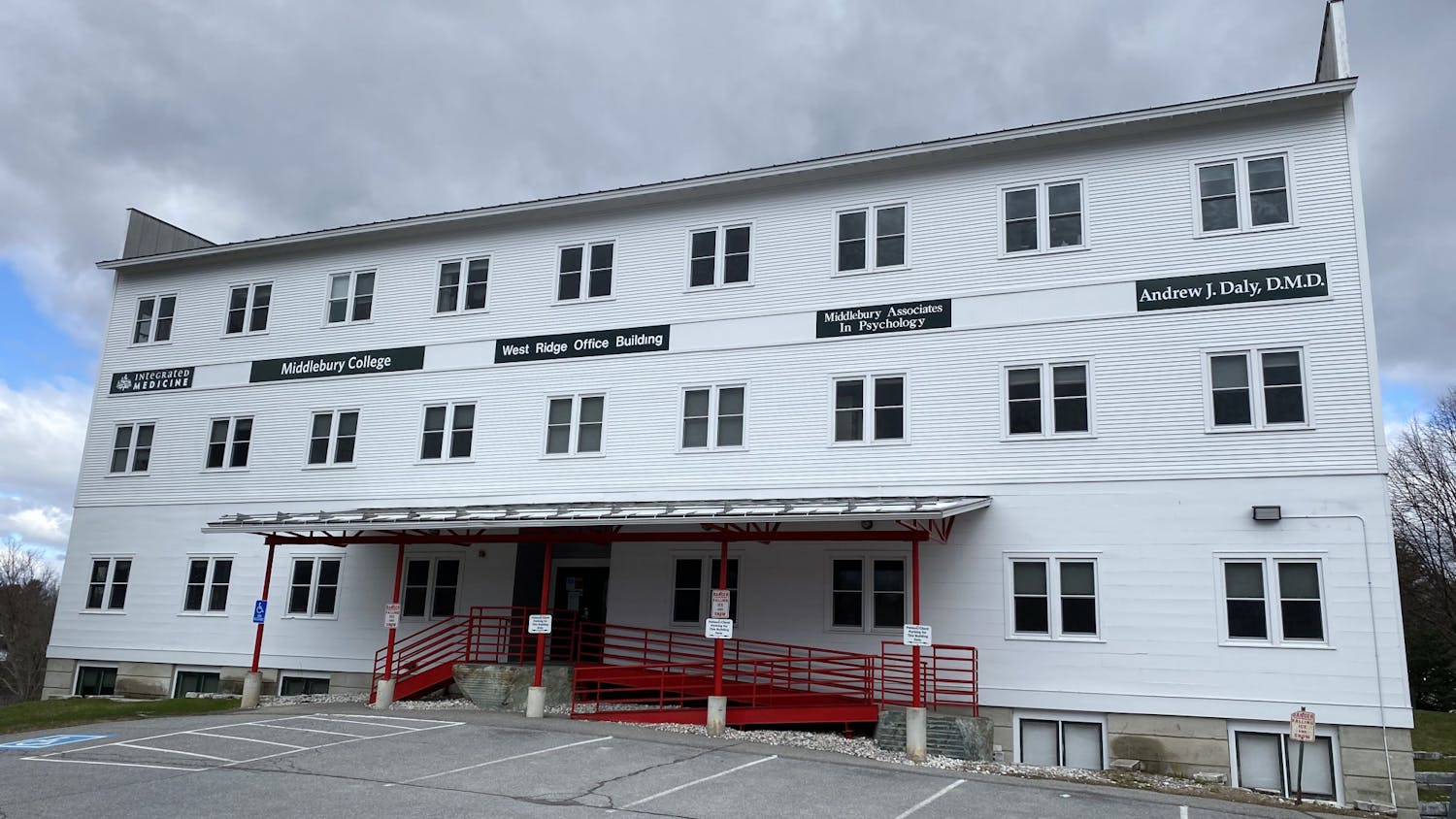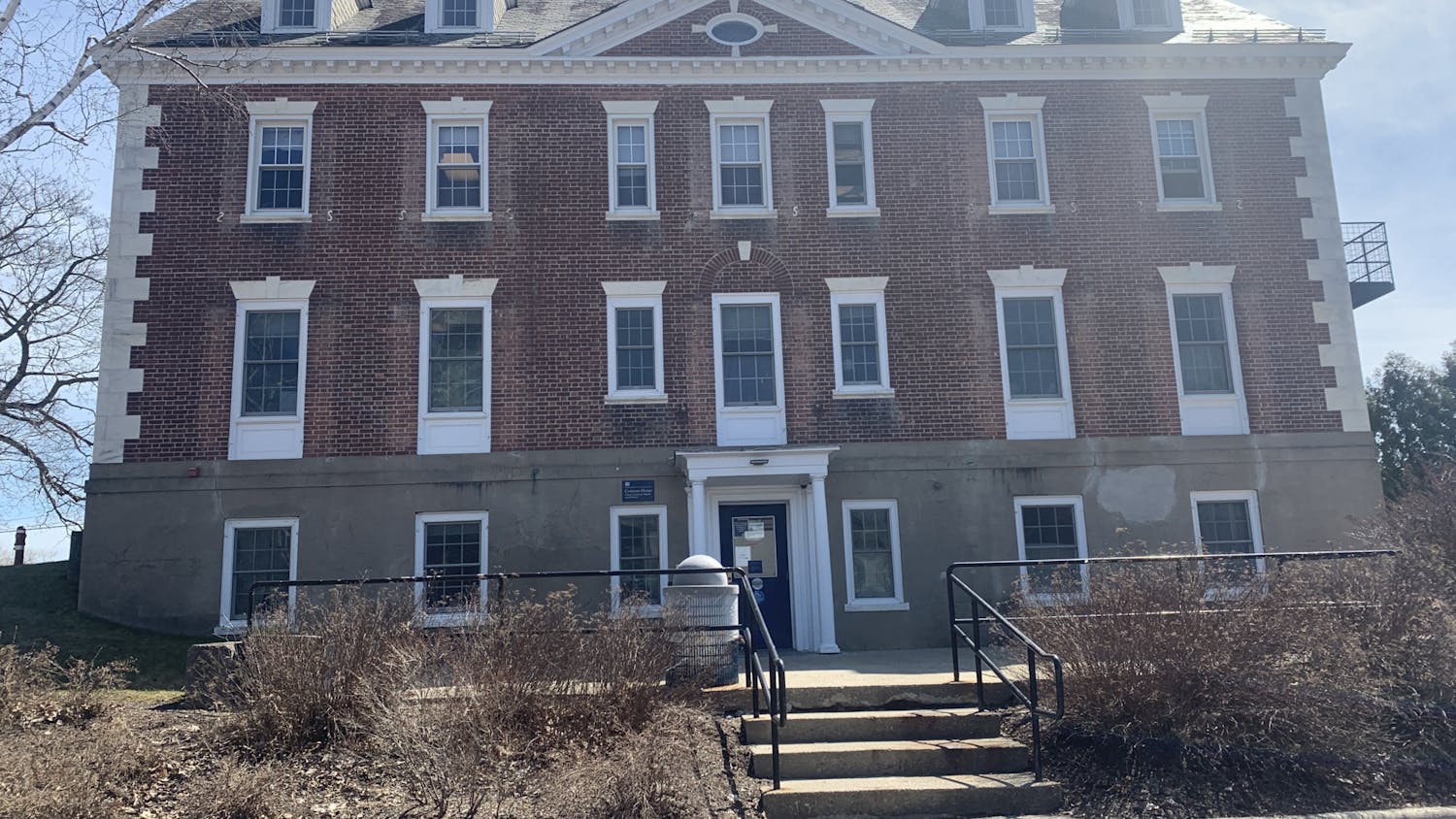Middlebury welcomed students back to campus for J-Term amid a sharp increase in Covid-19 cases nationwide. Arrival testing and testing throughout the first week of the term brought the case count on campus to 122 active cases, 96 student cases and 26 employee cases, on January 13.
Cases on campus
Middlebury is currently at an “Orange High Alert” level, the second highest of its four levels regarding the Covid-19 situation on campus.
The college decided in December to delay the start of J-Term classes until Jan. 10 in response to the national surge in Covid-19 cases from the Omicron variant, adding time for faculty and staff to prepare for the return of students to campus. Unless pre-approved to return to campus earlier, students moved in on Jan. 8 or 9 for the start of J-Term.
As was the case during the fall semester, students were required to obtain a PCR test within three days of their arrival at Middlebury, a change from the five-day window previously announced by the college for J-term. Students were then tested again upon arrival.
Out of the 1,914 day zero tests conducted on Jan. 8 and 9, 73 student tests came back positive according to a Jan. 10 email from Chief Health Officer Mark Peluso and Vice President for Student Life Smita Ruzicka. There were also positives among the roughly 350 students approved to arrive early — between Dec. 27 and Jan. 7.
In the email, Peluso and Ruzicka predicted cases would continue to increase in coming weeks.
Students were required to upload proof of receiving a Covid-19 vaccine booster shot to the Student Health Portal before arriving to campus, or schedule an appointment with the arrival booster clinic in the athletic center, unless a student had acquired a religious or medical exemption from the college.
Winter term classes started online on Jan. 10 and were permitted to resume in person on Jan. 12. Faculty have the option to maintain flexibility in teaching modality throughout the term, according to the college’s Campus Status page.
In an email sent to the Middlebury community on Jan. 12, Peluso and Ruzicka said that Dining Services plans to switch from grab-and-go to in-person dining on Jan. 24.
Increased Covid-19 testing
All students were tested again on Jan. 12 and 15. Students will be tested twice a week until further notice, according to the Campus Status page. Symptomatic students are required to quarantine in their rooms and book a test at Virtue Field House Monday through Thursday.
The college has also resumed testing for asymptomatic employees, after requiring faculty and staff to book tests through their healthcare providers during the fall semester. Testing is offered once a week to asymptomatic employees only. Employees who experience symptoms are still required to book a test through their healthcare provider.
A Jan. 18 Dean of Students email announced consequences for missing mandatory testing: after the first missed test, students will receive a warning, and if a student misses two testing dates consecutively, or three within one term, they will be referred to the Office of Community Standards for sanctioning.
Updated isolation guidelines
On Friday, Jan. 14, Middlebury shortened the required isolation period for students who tested positive from 10 to five days, following the CDC’s updated isolation recommendations.
“[The college’s] plan is to move to a five-day isolation policy as soon as possible,” Peluso and Ruzicka said in the Jan. 12 email. “This will depend on supply of antigen tests and other factors.”
However, students in isolation began receiving email notifications the same week that stated they were no longer required to complete the full 10-day isolation, nor were they required to complete an antigen or PCR test before leaving isolation.
The college also announced changes to isolation policies ahead of J-Term in an email sent on Jan. 5 from Peluso, Ruzicka and Vice President for Human Resources Caitlin Goss. While there are designated isolation housing options for students who contract Covid-19, the college anticipated filling those spaces quickly.
“Students who are safely able to do so will likely be required to return home or to another safe place to recover, or to recover in their rooms,” the administrators wrote in the Jan. 5 email. “This could include recovery with roommates who have not yet tested positive for Covid-19, with the assumption that these individuals already are close contacts who have been exposed.”
Ruzicka and Barbara McCall, executive director of the Center for Health & Wellness, clarified that a roommate of a Covid-positive individual would not necessarily need to quarantine unless they were undervaccinated, including those who are not vaccinated at all, or those who have not yet received a booster.
Correction: This article has been updated to correct the fact that roommates of Covid-positive individuals are considered close contacts, but don't need to quarantine unless they are undervaccinated. A previous version of the article said that these individuals would not necessarily be considered close contacts.

Katie Futterman '24 (she/her) is a Managing Editor.
Katie previously served as a News Editor and Staff Writer. This past summer, she was a news intern at Seven Days, and she held the same position at the Addison Independent the prior summer. In her free time, she loves to read, write, and bask in the sun.



